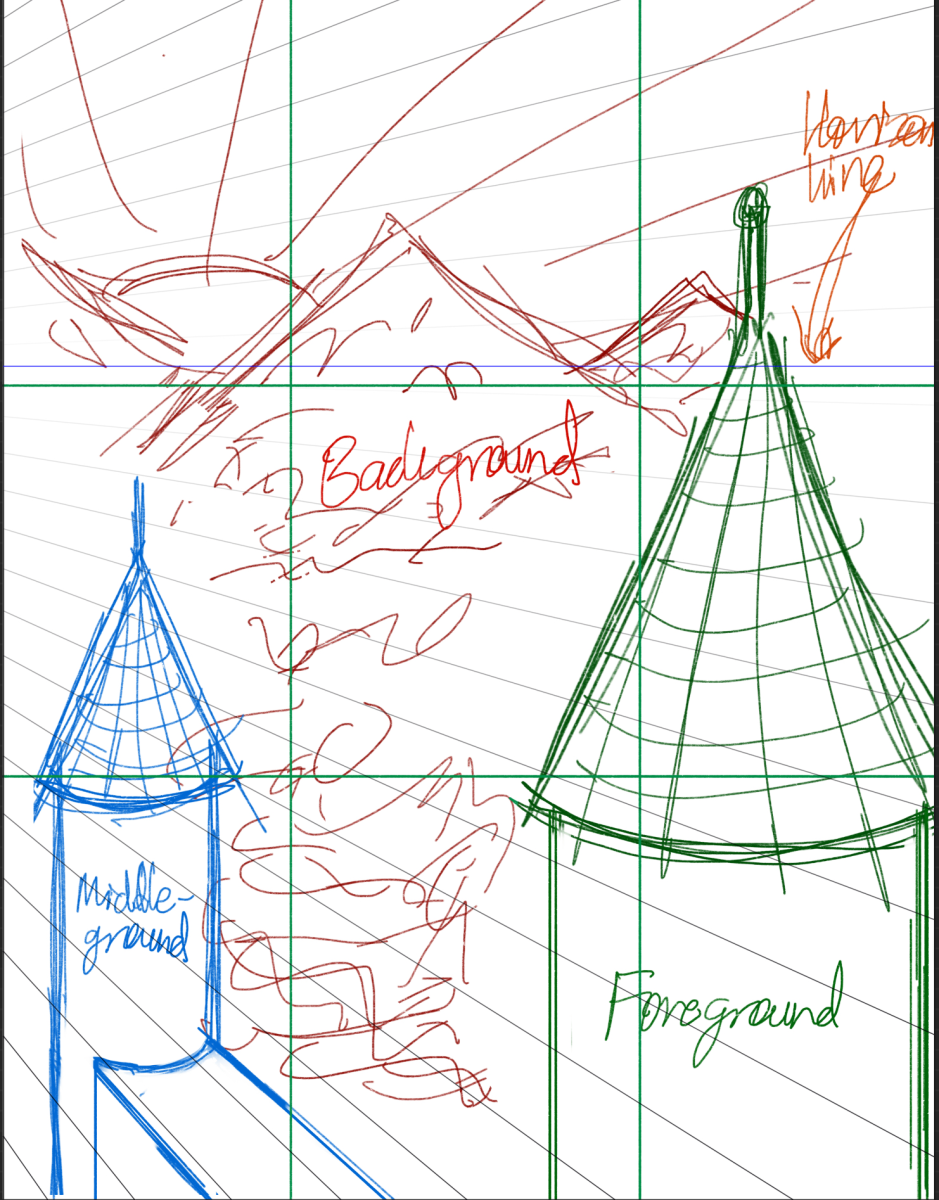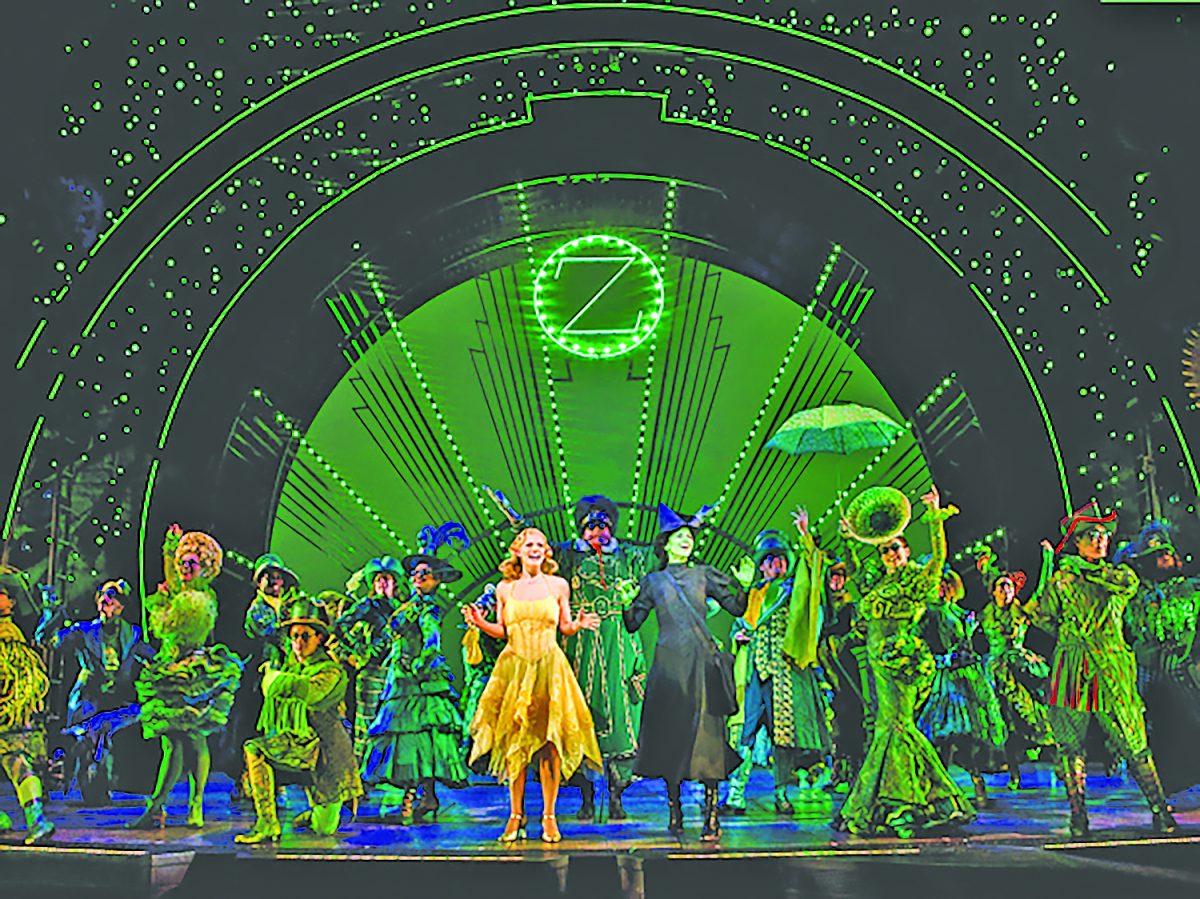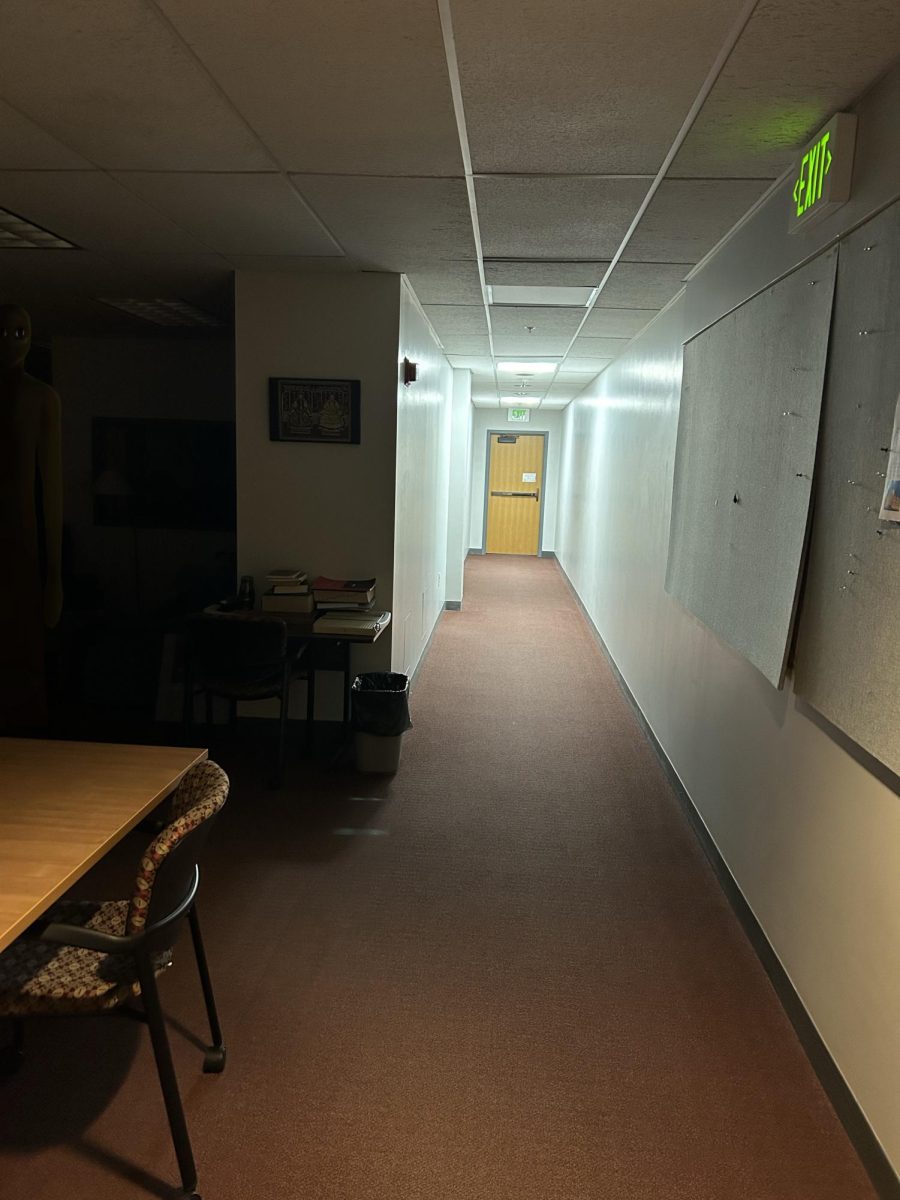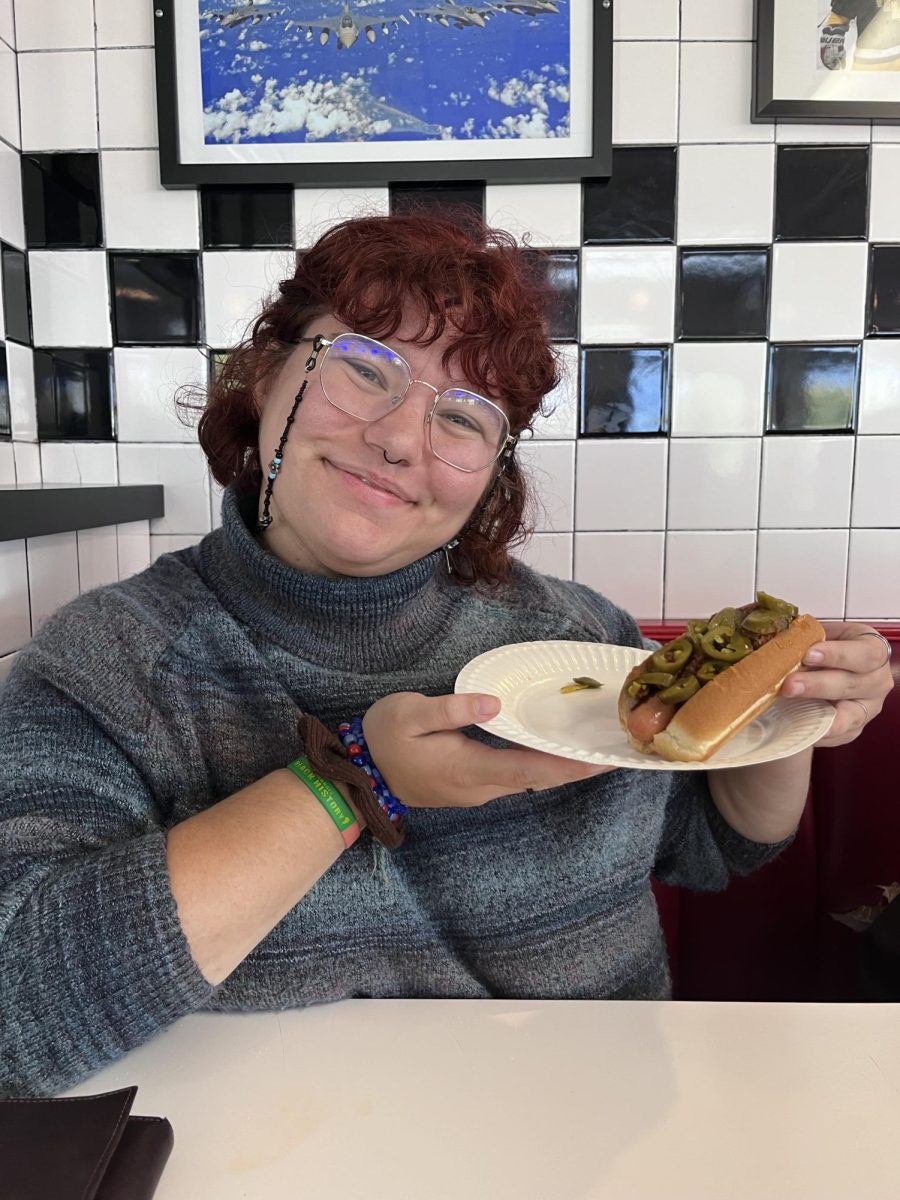Lou Beach is 65. He claims that puts him between “classic” and “legendary” status. He’s an L.A.-based visual artist who’s created album covers for the likes of Blink 182 and Ennio Morricone. Jeff Bridges asked him to create the poster for an unmade Terry Gilliam production. Writer Jonathan Lethem (“Motherless Brooklyn,” “Gun with Occasional Music”) said this about Beach’s first published writing, “420 Characters,” the JSC Common Book selection: “Holy shit!”
I sat down for a brief conversation with Beach during his visit to JSC on Oct. 3.
What brought your family to America?
A big boat.
The reason I was born there was because my father was a prisoner of war, he was in the Polish underground army, so he fought the Germans and the Russians, and my mother, maybe when she was 19, she was taken off a train in Poland and put to work as a forced slave laborer in Germany. After the war, they got back together. He was sponsored by the Polish government to go to University of Gothenburg, a famous school for science, and he got his degree there in agricultural chemistry.
We came here when I was four, here being the States. Rochester, New York.
You were raised in Rochester, then?
Yep. I lived in Boston. I lived in L.A., then from L.A. I drove cross-country in an old truck with a dog and my girlfriend.
Your website says you had a one-man show in Boston.
I had a show at the Boston Center for the Arts shortly after it opened. I was approached by a woman who was the patron of the theatre group that was having a production there. She was a wealthy woman, lived on Beacon Hill, she was married – they were old-style New Englanders, with those old New England names. They were just wonderful, wonderful generous people, and my girlfriend and I moved in with them on Beacon Hill.
She’d smoke cigarettes, and she was sort of like Katherine Hepburn. She was a wonderful, wonderful Irish-American lady. “Ahn-dy, we have this space. Put up some art.”
That’s a whole other story about Boston and gangsters. I’ll write that story some day.
I’m amazed you returned to L.A. after you escaped.
Well, it’s a dirty, ugly city, but it’s also quite beautiful. My backyard for instance is gorgeous. It’s full of desert plants. There are some very beautiful parts to L.A. It’s home. I’ve got friends there that I’ve known for many years. Not all of them are movie stars.
It’s home, where you’re comfortable, where your friends are… where you know where the best cheese shop is, or where the best record store is… it’s not as prim as San Francisco, for instance, but I couldn’t live up there. Something about it bothers me.
We’re close to the desert. The ocean is right there. Hollywood’s not a draw at all. The movie reason is not a reason for me to be there – although I’m writing an outline for a film, which I’ve never done, but I was asked to do so.
Asked by whom?
I’d rather not say, only because I’m trying to keep it under wraps. I didn’t say anything about it for months because I was terrified of doing it. The check was sitting on my desk. I said, “I can’t do this. I can’t do this. I can’t do this.”
Then I talked to a friend who’s written for films and he says, “Man, don’t listen to all that stuff you read on the Internet about the structure for a movie, just write a three-page story.” So I wrote a 25-page story, and now I just need to write the third act.
Film seems like a logical step considering your writing and your background as a visual artist.
Well, I haven’t – but then everybody in L.A.’s writing a screenplay. I don’t know if I’ll go further with this, but it’s fun. You know what’s really fun is writing dialogue. The way people talk is who they are. Elmore Leonard said, “Their dialogue is their character,” and it’s been really fun writing dialogue for these guys.
You worked a number of menial jobs: you were a truck driver –
Menial? The salt of the Earth!
Why is it that all these people who wind up working in art work in these kinds of jobs at some point?
I have trouble with your basic statement: “All of these people.” I think there are an awful lot of people who go from graduate school to whatever their chosen career is. When I was instructing in art schools, I was instructing editorial illustrations, I would say to the kids, “Don’t go work at a design company, don’t get a job for a year, just travel. Go to Europe, go somewhere out of the specific field you’re interested in. Go learn stuff that’s not taught in school. Work a shitty job.” You meet a lot of people other than academics and other young people who are interested in what you’re doing.
If you go from here to a design studio, you’re missing a whole lot of stuff that you can draw on. I worked in a machine shop, had accidents there, met a lot of people, drove a truck – not a huge truck across country, it was basically a flatbed truck. I worked in bookstores, factories.
Do you feel like most of the education necessary for art, for writing, comes from these experiences rather than in a classroom?
For me. The imagination’s a powerful thing: that’s what you draw on, your imagination. If you don’t need all this other stuff to feed your imagination…
You’re a visual artist, which is language without words, and yet here you are, rocking the words. Where does the writing come from?
I have no idea. It started as an amusement for myself. I’ve always read a lot, and I so appreciate writing that moves me. I’ll read a sentence by somebody – Robert Stone, or Dennis Johnson, or Pete Dexter, one of those cats who just lays it down and it’s just great, just a sentence. I want to make you see what I’m putting down on paper. Part of it is being a visual artist. A lot of times, you start with a visual thing.
James Baldwin said, “You want to write a sentence as clean as a bone.” I find myself writing things worse than shit. I might write something and then post it stupidly and then go back a month later and go, “Ugh!” It’s like a turd on a wedding cake.
Do you feel like visual art and writing express different parts of one’s identity?
They come from the same well of wanting to tell a story. We all want to tell stories. It’s just a human characteristic of wanting to tell stories and hear stories, whether the story is visual or written. I’d rather be a musician, but I don’t have the chops. I’m not all that disciplined. I’m kind of… scattered. I’m not linear. You have to practice that stuff.
But you didn’t have to practice your writing?
Posting to Facebook was the practice. It was like performance in a way. It was improv. I’d write it and I’d post it, sometimes to my chagrin because I’d go, “That word is so wrong!” But it made it real in that sense.
How about “140 Characters,” “420”’s Twitter sequel?
Oh no. I can’t do Twitter. I mean, I’m on Twitter. No, I want to write longer, not shorter.






